The Japanese have a longstanding tradition of sleeping on the floor, and it’s not just due to tradition or space constraints in small living spaces. Interestingly, this practice offers significant health benefits. Japan, known for its longevity, has piqued our curiosity about the reasons behind this centuries-old custom of floor-sleeping.
1. It allows you to save some money.
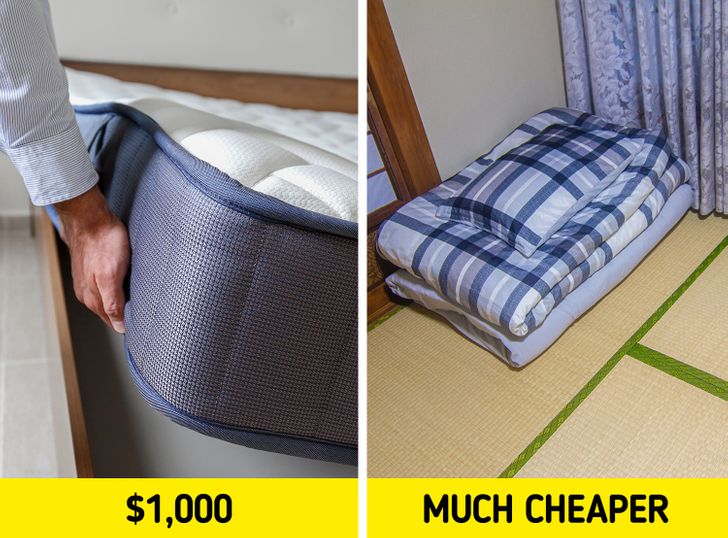
Switching to a floor bed can be a budget-friendly choice. Typically, people spend about $1,000 on a mattress, and if you make the wrong choice or need to replace it, it can be time-consuming and costly. Opting for a floor bed can save you thousands of dollars since you won’t need to invest in a bed frame or foundation to accommodate your mattress.
2. It enhances your blood flow.
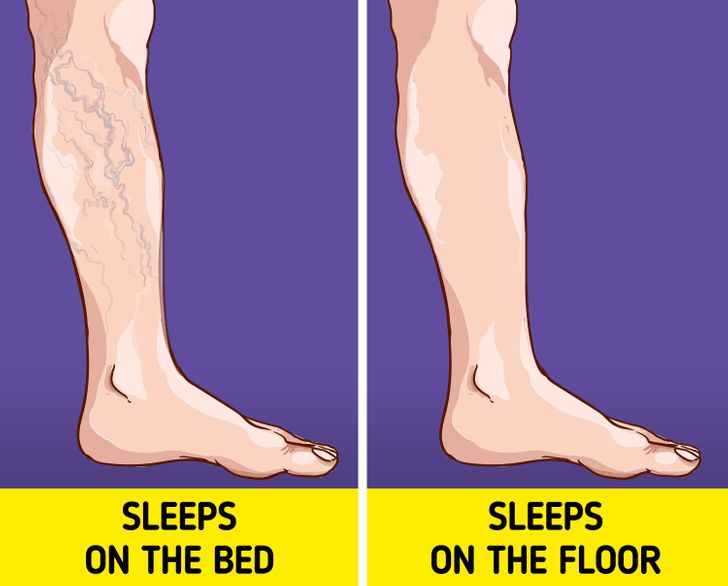
Sleeping on the floor can improve your blood circulation. This happens because your weight is evenly distributed, reducing pressure on specific areas of your body. By sleeping in a more natural position, you can prevent the numbness and tingling associated with poor circulation. For instance, when you sleep curled up on your side, blood circulation may be compromised, potentially leading to health issues like blood clots and varicose veins.
3. It helps with back pain.
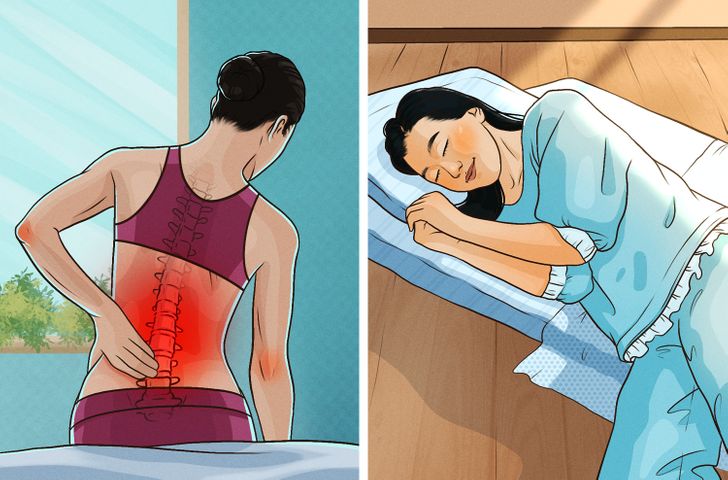
Opting for a firm, level surface to sleep on can provide relief for long-standing back pain. Although a soft mattress may feel cozy initially, over time it can sag, leading to spinal misalignment and discomfort. Medical professionals even suggest adding plywood beneath a soft mattress to maintain proper support. Sleeping on the floor ensures your spine stays aligned and prevents your body from adopting unnatural positions while you sleep.
4. It can help improve your posture.
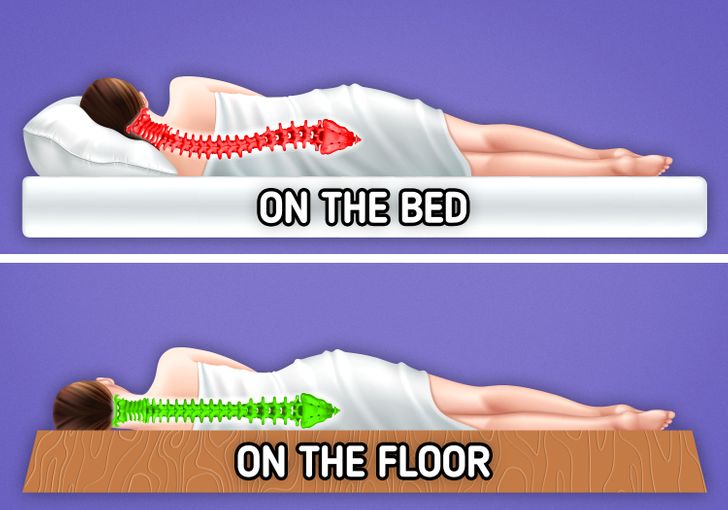
![]()
Ensuring you sleep in a position that supports your spine adequately can greatly assist in maintaining good posture throughout the day. Transitioning to sleeping on the floor can aid in correcting poor posture, as a pain-free back reduces the inclination to slouch.
5. It can assist you in waking up on schedule.
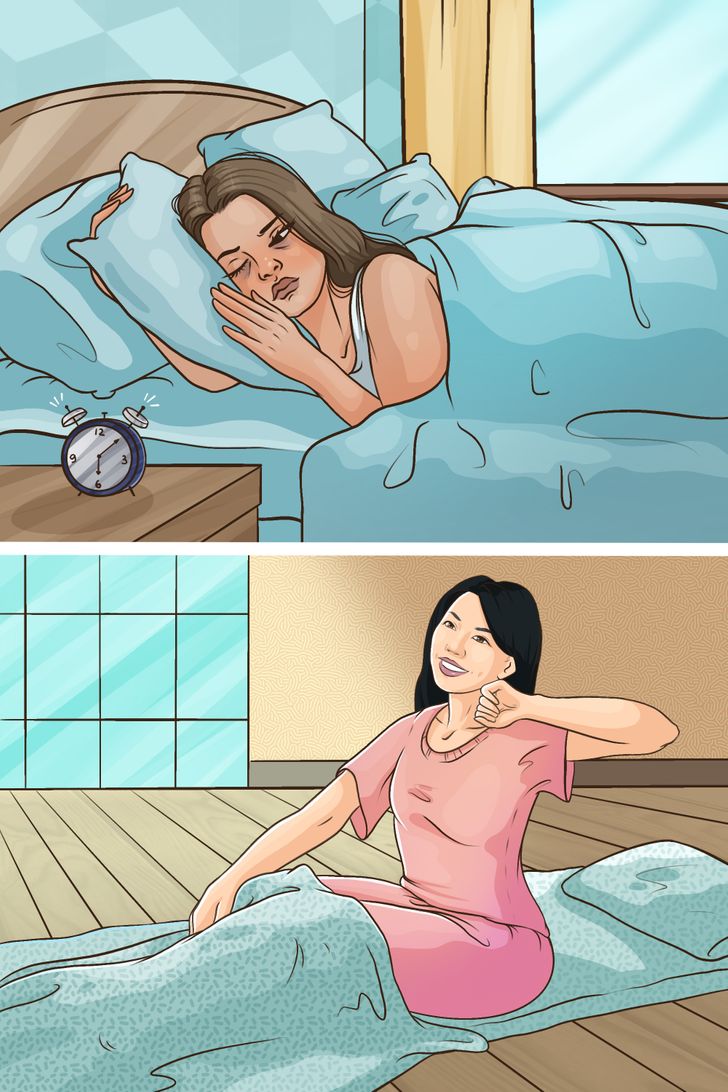
If you often find it challenging to leave the cozy embrace of your pillows and rise from bed in the morning, you’re in good company. It’s a common struggle for many individuals when the alarm sounds, often tempting them to hit the snooze button repeatedly. However, sleeping on the floor can provide a balance of comfort that doesn’t tempt you to linger in bed all day, ensuring you wake up feeling refreshed and ready to tackle the day ahead.
Let’s talk about the disadvantages of sleeping on the floor.
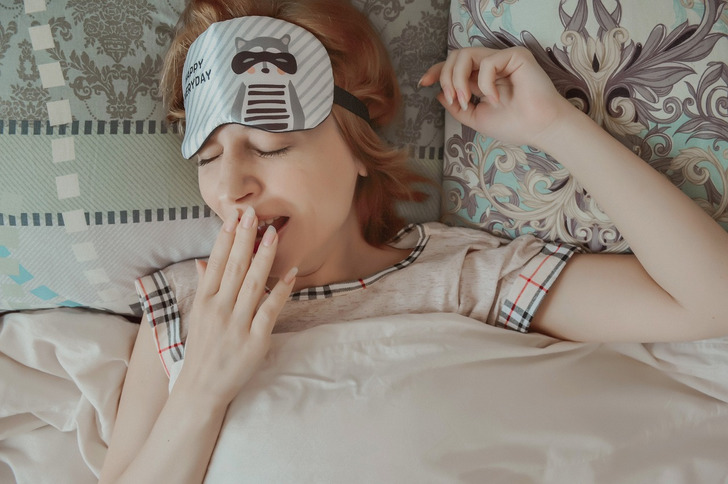
While there are undeniable advantages to sleeping on the floor, most people tend to prefer the comfort of a mattress foundation for various reasons. Let’s break it down:
- Allergies. Sleeping on the floor exposes you to more dust, dirt, and skin cells, which can trigger allergies and respiratory issues. This buildup of allergens is similar to what can happen with an old mattress over time.
- Mold and mildew. A mattress placed directly on the floor lacks proper airflow, leading to the accumulation of heat and sweat, creating an environment ripe for mold and mildew growth. Dealing with mold can be costly, as it often requires replacing the mattress.
- Comfort. While some find relief from back pain by sleeping on a firm surface like the floor, others may experience discomfort due to a lack of cushioning, leading to pressure points and soreness in the lower back, shoulders, and hips.
- Risk of pests. Sleeping on the floor makes you more susceptible to bed bugs, ants, cockroaches, and other pests. To mitigate this risk, it’s essential to elevate your bedding during the day and use a mattress protector.
Who should refrain from sleeping directly on the floor
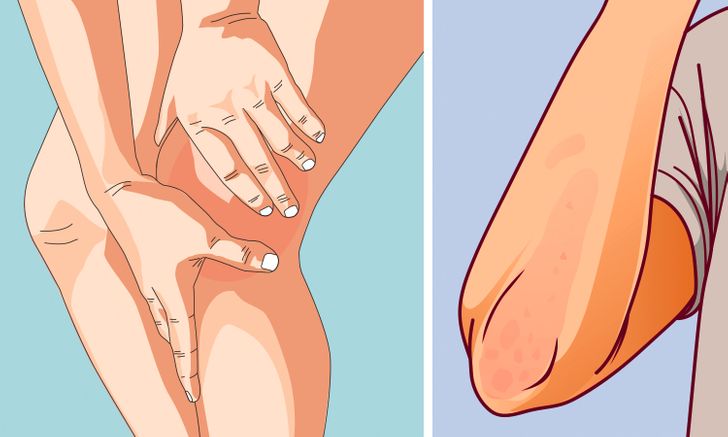
Let’s talk about who might want to avoid sleeping on the floor. While sleeping without a mattress has its advantages, it may not be suitable for everyone.
- People with bone diseases. For those already dealing with serious bone disorders, sleeping on the hard floor may exacerbate joint pressure and discomfort.
- Elderly individuals. Mobility can become challenging with age, making it difficult for older adults to get up and down from the floor comfortably.
- People who get cold easily. If you tend to feel chilly during the night, sleeping directly on the floor might make you even colder. It’s best to avoid floor-sleeping in this case to stay warm and comfortable throughout the night.
While most of us associate blankets with feelings of security and comfort, going without one could offer various advantages, including the potential to improve sleep quality and promote faster sleep onset.









